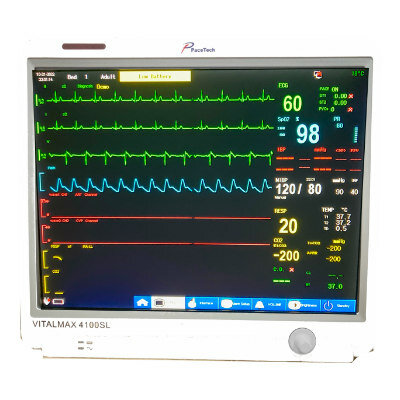New MRI-Guided Therapy Navigates Magnetic Seed Through Brain to Heat and Destroy Tumors
|
By HospiMedica International staff writers Posted on 03 Feb 2022 |

Scientists have developed a novel cancer therapy that uses an MRI scanner to guide a magnetic seed through the brain to heat and destroy tumors.
The therapy, demonstrated by scientists at University College London (London, UK), in mice, is called “minimally invasive image-guided ablation” or MINIMA and comprises a ferromagnetic thermoseed navigated to a tumor using magnetic propulsion gradients generated by an MRI scanner, before being remotely heated to kill nearby cancer cells. The researchers say their findings establish ‘proof-of-concept’ for precise and effective treatment of hard-to-reach glioblastoma, along with other cancers such as prostate, that could benefit from less invasive therapies.
In the study, the UCL team demonstrated the three key components of MINIMA to a high level of accuracy: precise seed imaging; navigation through brain tissue using a tailored MRI system, tracked to within 0.3 mm accuracy; and eradicating the tumor by heating it in a mouse model. Ferromagnetic thermoseeds are spherical in shape, 2 mm in size and are made of a metal alloy; they are implanted superficially into tissue before being navigated to the cancer. MRI scanners are readily available in hospitals around the world and are pivotal in the diagnosis of diseases such as cancer. The work at UCL shows that MINIMA has the potential to elevate an MRI scanner from a diagnostic device to a therapeutic platform.
“MINIMA is a new MRI-guided therapy that has the potential to avoid traditional side effects by precisely treating the tumor without harming healthy tissues,” said senior author, Professor Mark Lythgoe (UCL Centre for Advanced Biomedical Imaging). “Because the heating seed is magnetic, the magnetic fields in the MRI scanner can be used to remotely steer the seed through tissue to the tumor. Once at the tumor, the seed can then be heated, destroying the cancer cells, while causing limited damage to surrounding healthy tissues.”
“Using an MRI scanner to deliver a therapy in this way allows the therapeutic seed and the tumor to be imaged throughout the procedure, ensuring the treatment is delivered with precision and without having to perform open surgery,” added lead author, Rebecca Baker, (UCL Centre for Advanced Biomedical Imaging). “This could be beneficial to patients by reducing recovery times and minimizing the chance of side effects.”
Related Links:
University College London
Latest Surgical Techniques News
- Hydrogel-Based Miniaturized Electric Generators to Power Biomedical Devices
- Custom 3D-Printed Orthopedic Implants Transform Joint Replacement Surgery
- Wearable Technology Monitors and Analyzes Surgeons' Posture during Long Surgical Procedures
- Cutting-Edge Imaging Platform Detects Residual Breast Cancer Missed During Lumpectomy Surgery
- Computational Models Predict Heart Valve Leakage in Children
- Breakthrough Device Enables Clear and Real-Time Visual Guidance for Effective Cardiovascular Interventions
- World’s First Microscopic Probe to Revolutionize Early Cancer Diagnosis
- World’s Smallest Implantable Brain Stimulator Demonstrated in Human Patient

- Robotically Assisted Lung Transplants Could Soon Become a Reality
- AI to Provide Heart Transplant Surgeons with New Decision-Making Data
- New Surgical Tool Empowers Precision and Confidence in Operating Room
- Future Muscle-Powered Surgical Robots Could Perform Minimally Invasive Procedures inside Body
- Non-Invasive Technique Combines Cardiac CT with AI-Powered Blood Flow for Heart Bypass Surgery
- First-Of-Its-Kind Device Repairs Leaky Tricuspid Heart Valve
- New Signaling Method Enables Precise Localization of Miniature Robots and Surgical Instruments inside Body
- Novel Catheter System Enables Safer, More Cost-Effective Transseptal Procedures
Channels
Artificial Intelligence
view channel
AI-Powered Algorithm to Revolutionize Detection of Atrial Fibrillation
Atrial fibrillation (AFib), a condition characterized by an irregular and often rapid heart rate, is linked to increased risks of stroke and heart failure. This is because the irregular heartbeat in AFib... Read more
AI Diagnostic Tool Accurately Detects Valvular Disorders Often Missed by Doctors
Doctors generally use stethoscopes to listen for the characteristic lub-dub sounds made by heart valves opening and closing. They also listen for less prominent sounds that indicate problems with these valves.... Read moreCritical Care
view channel
Deep-Learning Model Predicts Arrhythmia 30 Minutes before Onset
Atrial fibrillation, the most common type of cardiac arrhythmia worldwide, affected approximately 59 million people in 2019. Characterized by an irregular and often rapid heart rate, atrial fibrillation... Read more
Breakthrough Technology Combines Detection and Treatment of Nerve-Related Disorders in Single Procedure
The peripheral nervous system (PNS) serves as the communication network that links the brain and spinal cord to every other part of the body. It consists of two parts: the somatic nervous system, which... Read morePatient Care
view channel
Surgical Capacity Optimization Solution Helps Hospitals Boost OR Utilization
An innovative solution has the capability to transform surgical capacity utilization by targeting the root cause of surgical block time inefficiencies. Fujitsu Limited’s (Tokyo, Japan) Surgical Capacity... Read more
Game-Changing Innovation in Surgical Instrument Sterilization Significantly Improves OR Throughput
A groundbreaking innovation enables hospitals to significantly improve instrument processing time and throughput in operating rooms (ORs) and sterile processing departments. Turbett Surgical, Inc.... Read more
Next Gen ICU Bed to Help Address Complex Critical Care Needs
As the critical care environment becomes increasingly demanding and complex due to evolving hospital needs, there is a pressing requirement for innovations that can facilitate patient recovery.... Read moreGroundbreaking AI-Powered UV-C Disinfection Technology Redefines Infection Control Landscape
Healthcare-associated infection (HCAI) is a widespread complication in healthcare management, posing a significant health risk due to its potential to increase patient morbidity and mortality, prolong... Read moreHealth IT
view channel
Machine Learning Model Improves Mortality Risk Prediction for Cardiac Surgery Patients
Machine learning algorithms have been deployed to create predictive models in various medical fields, with some demonstrating improved outcomes compared to their standard-of-care counterparts.... Read more
Strategic Collaboration to Develop and Integrate Generative AI into Healthcare
Top industry experts have underscored the immediate requirement for healthcare systems and hospitals to respond to severe cost and margin pressures. Close to half of U.S. hospitals ended 2022 in the red... Read more
AI-Enabled Operating Rooms Solution Helps Hospitals Maximize Utilization and Unlock Capacity
For healthcare organizations, optimizing operating room (OR) utilization during prime time hours is a complex challenge. Surgeons and clinics face difficulties in finding available slots for booking cases,... Read more
AI Predicts Pancreatic Cancer Three Years before Diagnosis from Patients’ Medical Records
Screening for common cancers like breast, cervix, and prostate cancer relies on relatively simple and highly effective techniques, such as mammograms, Pap smears, and blood tests. These methods have revolutionized... Read morePoint of Care
view channel
Critical Bleeding Management System to Help Hospitals Further Standardize Viscoelastic Testing
Surgical procedures are often accompanied by significant blood loss and the subsequent high likelihood of the need for allogeneic blood transfusions. These transfusions, while critical, are linked to various... Read more
Point of Care HIV Test Enables Early Infection Diagnosis for Infants
Early diagnosis and initiation of treatment are crucial for the survival of infants infected with HIV (human immunodeficiency virus). Without treatment, approximately 50% of infants who acquire HIV during... Read more
Whole Blood Rapid Test Aids Assessment of Concussion at Patient's Bedside
In the United States annually, approximately five million individuals seek emergency department care for traumatic brain injuries (TBIs), yet over half of those suspecting a concussion may never get it checked.... Read more
New Generation Glucose Hospital Meter System Ensures Accurate, Interference-Free and Safe Use
A new generation glucose hospital meter system now comes with several features that make hospital glucose testing easier and more secure while continuing to offer accuracy, freedom from interference, and... Read moreBusiness
view channel
Johnson & Johnson Acquires Cardiovascular Medical Device Company Shockwave Medical
Johnson & Johnson (New Brunswick, N.J., USA) and Shockwave Medical (Santa Clara, CA, USA) have entered into a definitive agreement under which Johnson & Johnson will acquire all of Shockwave’s... Read more
















